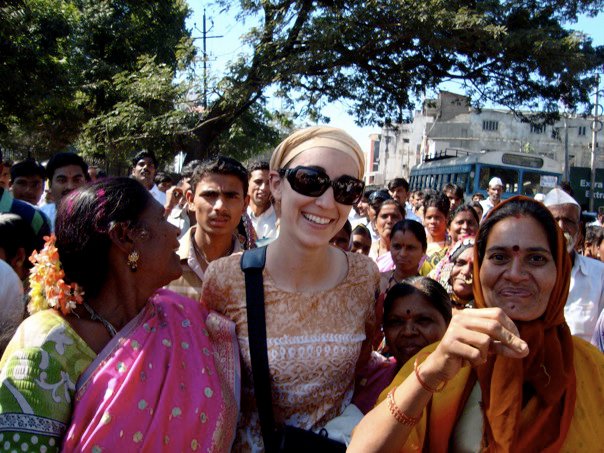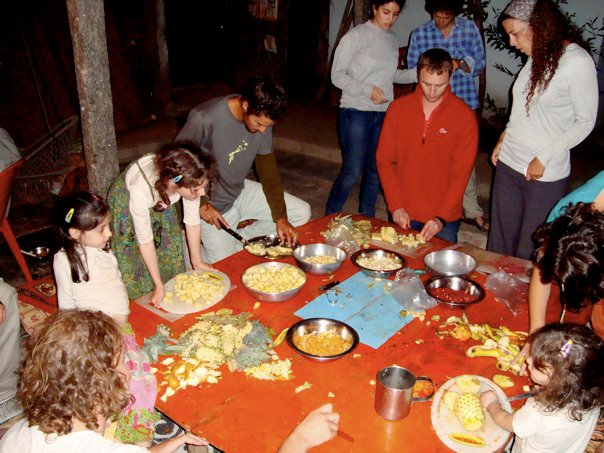
In Bijapur, India, local women welcome me with open arms, even though I look different and have different customs.
I feel like a stranger everywhere I go. Whether I am in a foreign country among people who do not speak my language or I am visiting my family back home in Virginia, I feel like a stranger. I am a wanderer, the Roaming Rebbetzin, married to the Traveling Rabbi, ever on the move.
Sometimes I feel like a stranger just because I am in a place I have never been before. I don’t know anyone, nobody knows me. Countless times have I relied on the generosity and kindness of strangers. Countless times have fellow Jews – and even non-Jews – opened their doors to me in hospitality, whether I was traveling alone or with my husband. And there were also times when I felt unwelcome, where I was made to feel I didn’t fit or I wasn’t wanted and I found doors shut in my face just when I needed them opened. This is the way life goes. But on balance, far, far more doors have been opened than have been closed; far more people have given me hospitality than have ever even hinted at refusing it.
Sometimes I feel like a stranger because of my life situation and my story. I may know the people around me, I may be amongst friends I have known for years, and yet coming home always makes me feel like a stranger. With every journey away from home, not only does the story of my life change, but I change. New situations and new experiences shape us into new people and so, coming home again, I once again feel like a stranger. Once again, I rely on the generosity, love, and caring of those people who knew me before, and I rely on their kindness in opening their arms to me once again, even though I have changed since they last saw me.
So in reading this week’s parsha, I found a commandment that really resonates with me. “You shall not abuse a stranger and you shall not oppress him,” Hashem (G-d) commands, “for you were strangers in the land of Egypt.” We Jews were strangers in the land of Egypt and we were abused and oppressed there. As we were oppressed, we should learn from this not to act so badly to others. We are above such behavior. We are Jews.
My personal experiences have made this so much the more true. Being strangers places us in a position of vulnerability, just as widows and orphans are vulnerable, and Hashem hears the cries of those in a difficult position. Yet, having had those experiences, I know so much more that strangers must be treated kindly. Not just that they should be spared abuse (including taunts, teasing, or insults) but that we should show them chessed, lovingkindness. The role of a Jew is to be a light unto the world.
Look around you. In your town, in your synagogue, there is bound to be someone new. Do you know their name? Their story? No? Go up to them this Shabbos and this coming week. Speak to them. Offer them your support, invite them for a Shabbat meal. You have no idea how much impact your hospitality could have on another person. If they look different, speak different, have a different minhag (or even do not know the halacha as well as you do!), do not speak badly about them or to them – do not even think badly of them! Instead, hold out your hand (whether figuratively or literally) and welcome them. Act as a true Jew and welcome the stranger amongst you.
Shabbat shalom.







No Responses to “Parshas Mishpatim: Welcoming the Strangers”
Trackbacks/Pingbacks